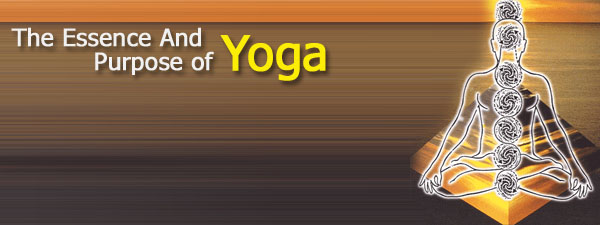
|
Individuals are subjected to space causality and it is indeed to emerge from it. But if wishes to realise metaphysical one must fly, one must take oneself beyond the contingent, the individual and the genera]; in other words, one must be able to remain without supports. From this comes the name asparsha, which means non-contact, without relations, links and supports. From this comes also the proper kind of attention which must be given to it, as this is a special and particular type of knowledge time- which does not operate in a difficult manner in keeping with commonly one used discursive or empirical knowledge, knowledge. It is the true 'way of fire', because it burns all of maya's objectivating possibilities, and unveils itself in its self-splendour. To grasp a-temporality directly means not to base oneself upon any type of practical yoga or psycho physical exercise; it means sinking abruptly into the all-containing and all-pervading present.
This metaphysics of yoga was Gaudapada and Sankara, the two great masters of Adtvaita Vedanta. Gaudapada states in his Karikas: "I bow to this yoga taught by the scriptures themselves well known as asparsha, free from relation, beneficial, generative of bliss for all beings,de- void of oppositions and contradiction." Sankara speaks of it as the yoga without contact-support. It is
de- scribed in the Upanishads, and will be difficult for anyone
who has no proper understanding of the Upanishads. Objects are but
mental repre- sentations, and these are obstacles that must be eliminated.
Gaudapada says: "The knowledge of the illuminated being, which
is all pervading, has no relations with any object. Thus, the souls
too have relationship with objects." Philosophy of Being: This direct realisation of the absolute is the authentic 'philosophy of being,' pure sole being which is the non-dual principle. Grasping absoluteness is difficult be- cause the mind operates within the realm of subject-object relationships. Those who strive to place the absolute within this framework of mental representations truggle in vain. This yoga requires an approach of identity. Being the yoga with out relations or supports, it re quires an immediate entry into the Self without the help of objects, feelings, will or empirical knowl- edge. On the metaphysical pathway, the determining factor is being. He is not driven towards acquisition of anything superior, not even the goal of union as it is commonly under stood. The asparsha yoga disciple no withdraws into himself and appre- hends the absolute in all its majesty within the secret core of his own heart. Beyond all ideas, concepts, idols, and phenomena is that which is totality. Being is and there is nothing more to be added, because to say that being is 'this or that' means that being is not. What is required is a certain type of understanding that is not of the sensible order, going beyond the dialectical, dogmatic or rational set of concepts. This type of yoga is that of pure insight into things. It goes beyond phenomenology, all common rea- son, all religion, all changing social moral and sensible experience or mediated knowledge. Metaphysi- cal truths cannot be closed into schemes, concepts or analytical frameworks. Asparsha Yoga is integral realisation where the adept achieves conscious and non-theoretical identity. One does not arrive at this point by means of self-imposed discipline, faith or devotion but by means of a deep inner awareness, when all extroverted energy fades away and the spirit is completely free. It enters into its own essence devoid of cause, time and space. Asparsha Yoga represents the last step and the goal of all human
experience, the highest expression of spiritual, the movement from
the unreal to the real, from death to life, from the finite to the
infinite, from the human to the divine. |
